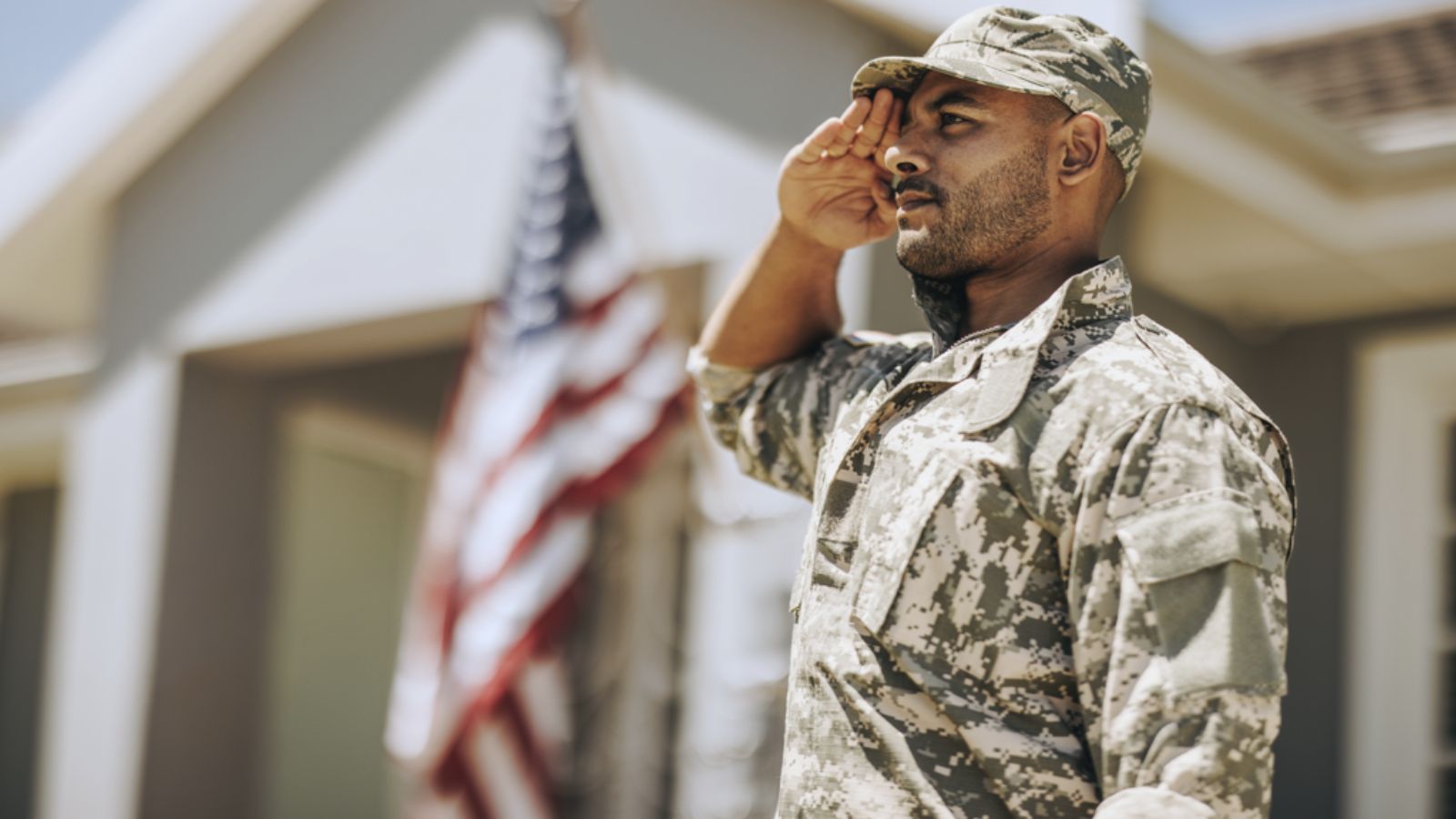If you have a military veteran as a friend, there are many terms you hear from him or her that just sound like “jargon” unless you served as well. Here are 20 such terms and what they really mean.
Blue Falcon
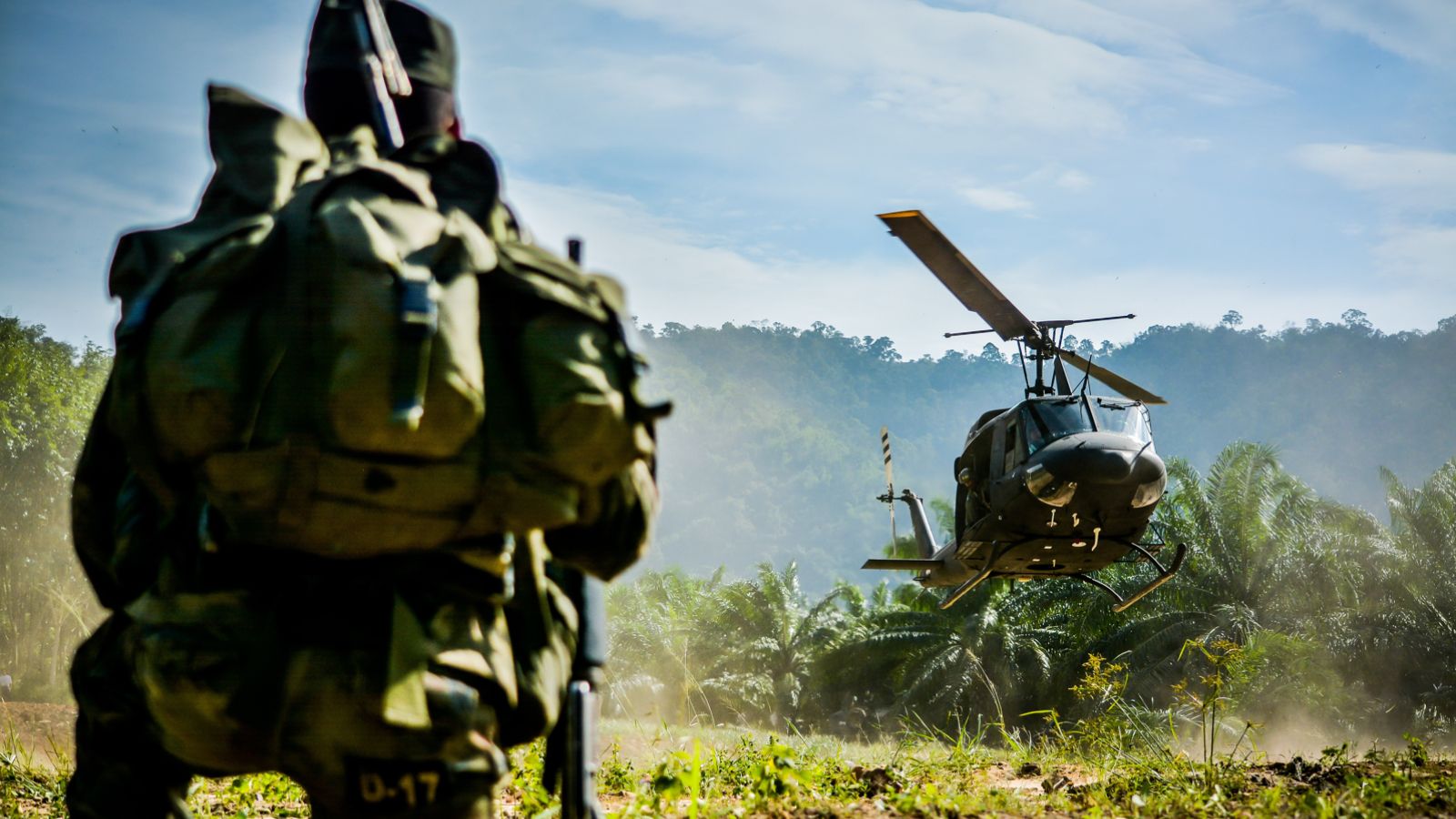
A “Blue Falcon” is a military service member who has betrayed his or her comrades on the battlefield. The Urban Dictionary also says it could mean anyone who is known to put his colleagues in trouble. Generally, this term is used to describe anyone who puts his or her own interests above the group’s, essentially breaking the trust that is essential in military operations.
AWOL
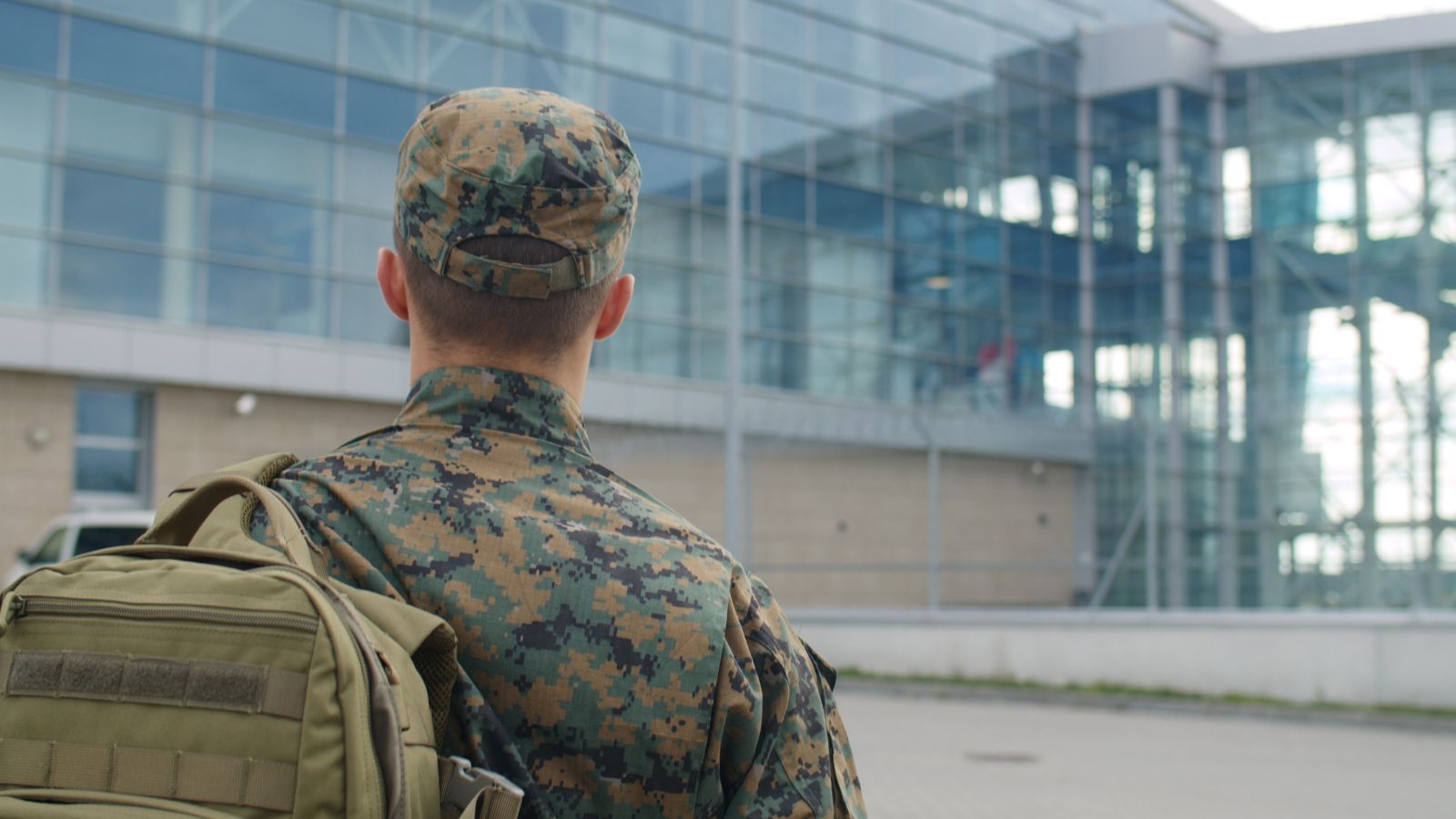
AWOL stands for “Absent Without Leave,” as defined by Cambridge. It’s usually used when a service member, whether it be in the Air Force, Army, or Navy, has left their official post without permission. Members found guilty of this are typically punished with fines, dishonorable discharges, and even confinement.
FUBAR
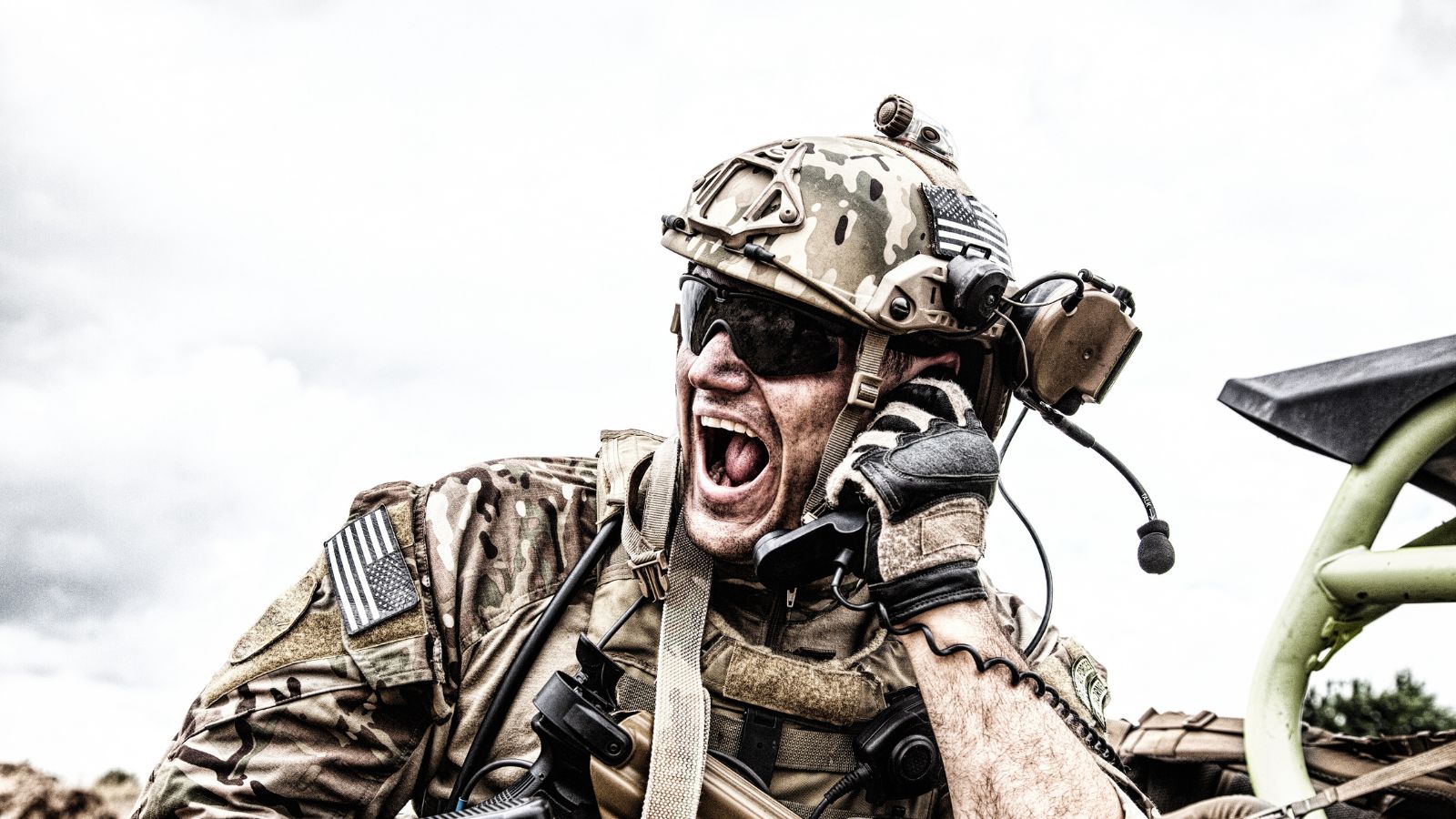
FUBAR stands for “Fouled Up Beyond All Recognition,” and it’s a slang term used to describe a situation that has gone terribly wrong—typically beyond repair too. Sometimes, this may be when a crucial piece of equipment stops working or when everyone realizes that a mission has completely failed.
SNAFU
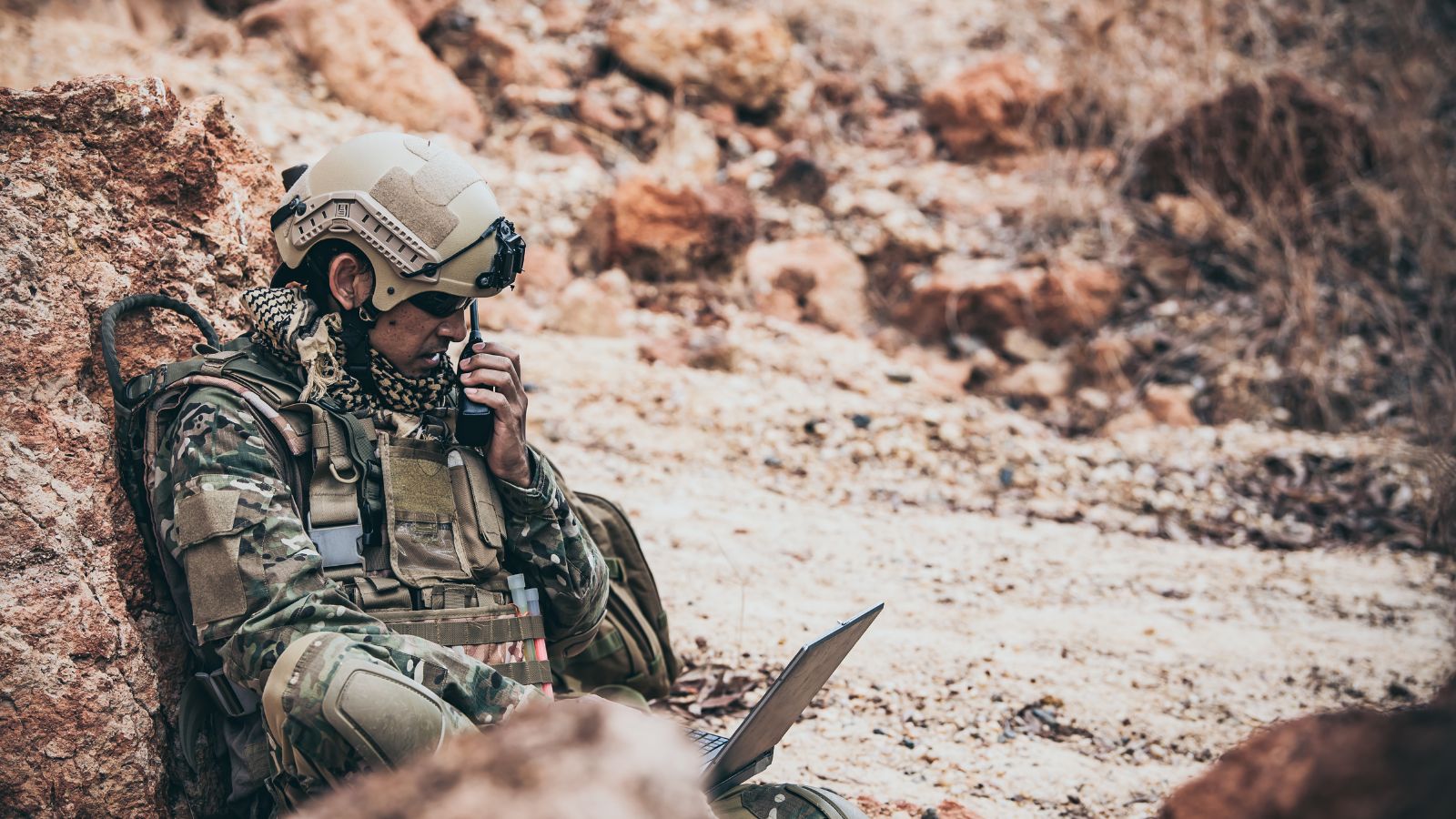
Similar to FUBAR, SNAFU is an acronym for “Situation Normal: All Fouled Up.” It describes a situation that is chaotic and not unexpected in military operations, such as logistical mishaps or communication breakdowns. This term reflects the acceptance that things often don’t go as planned, yet they are still manageable within the chaos.
PT

PT stands for “Physical Training,” a crucial part of daily military life. Service members engage in rigorous physical exercises to maintain peak fitness levels, including running, weightlifting, and calisthenics. PT sessions are structured and demanding, designed to build physical endurance and mental toughness in service members.
Ruck March
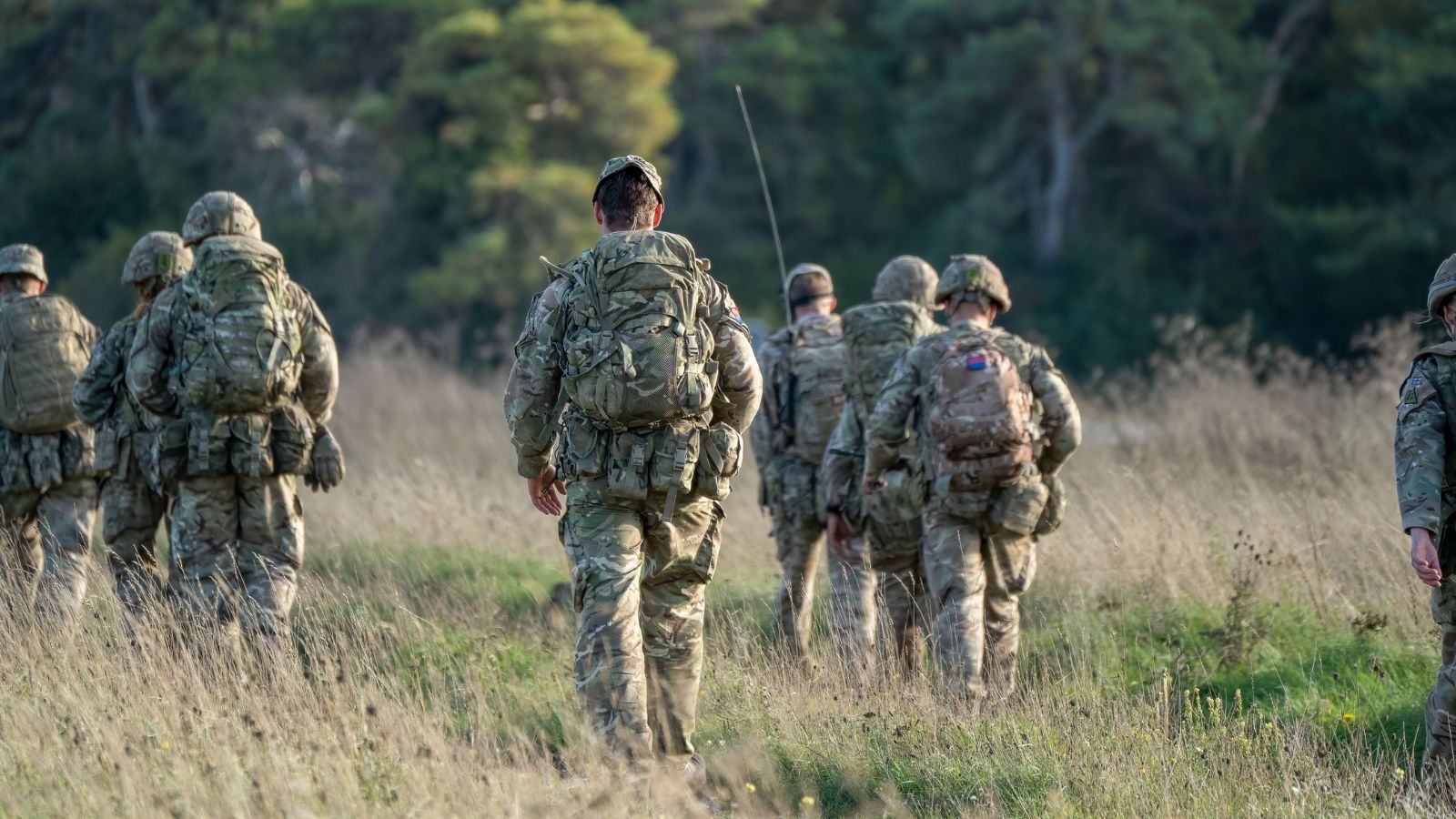
A ruck march involves marching or hiking with a loaded backpack, known as a rucksack. This activity is a common training exercise that builds endurance and strength, often involving specific weight requirements and timed distances. Service members carry heavy loads over long distances to simulate conditions they might face in the field.
Chow Hall
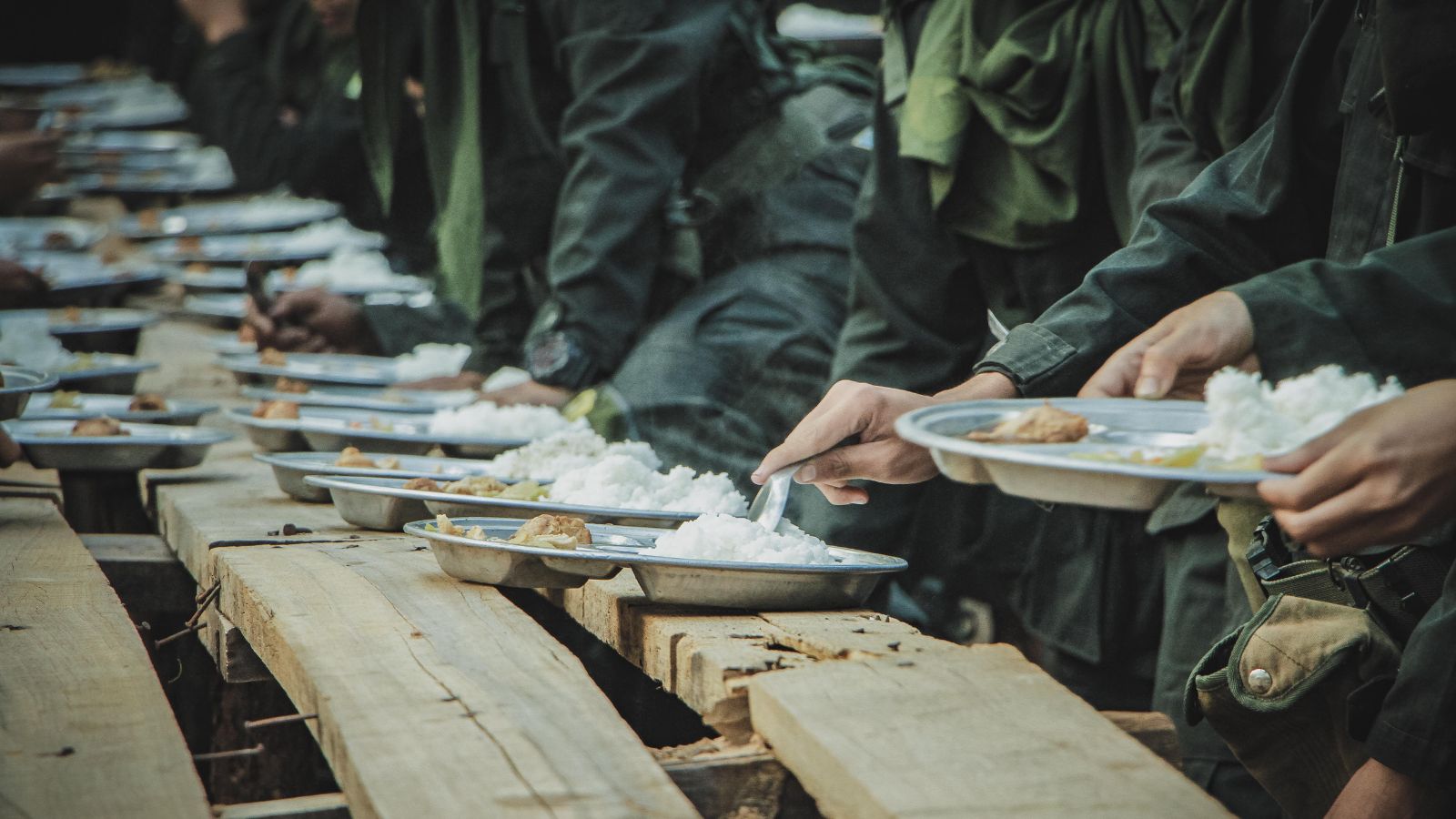
The chow hall is the dining facility where service members eat their meals. It’s a central part of military life that doesn’t just help with nourishment but is also often the setting for camaraderie and informal meetings. The term can be used ordinarily to refer to a room used for shared mealtimes.
Field Day

Field Day refers to a scheduled day for thorough cleaning and maintenance of living quarters, including scrubbing floors, organizing gear, and performing equipment checks. It’s an important aspect of military discipline, and in ordinary use, it just means a day to get living spaces in top condition.
Hooah
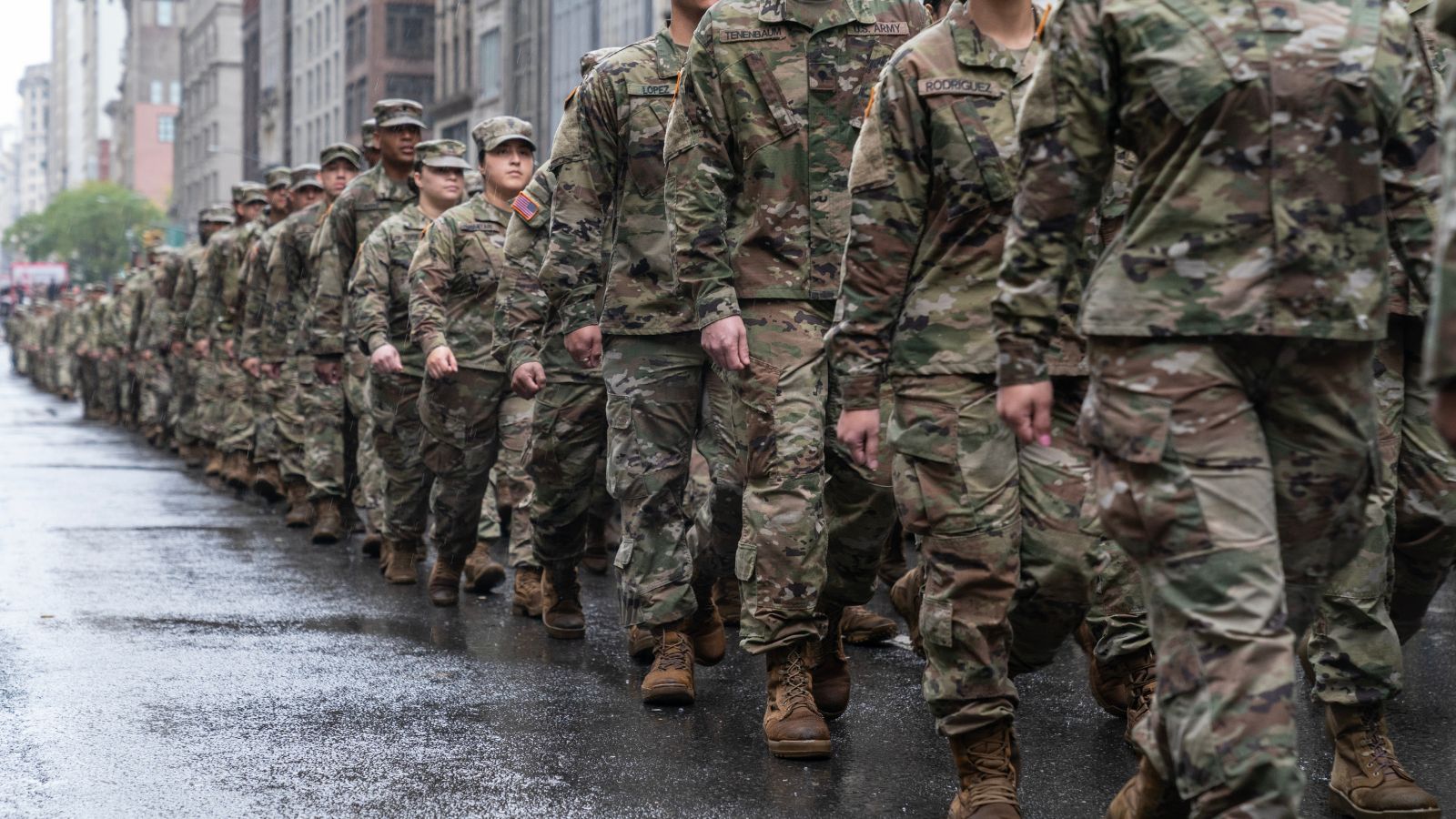
According to the Army University Press, “hooah” is a shortened vocalization of the words “heard, understood, and acknowledged,” and it is a versatile expression used by soldiers to convey acknowledgment, enthusiasm, or agreement. This slang is often shouted during physical training, in response to commands, or to boost morale.
MRE
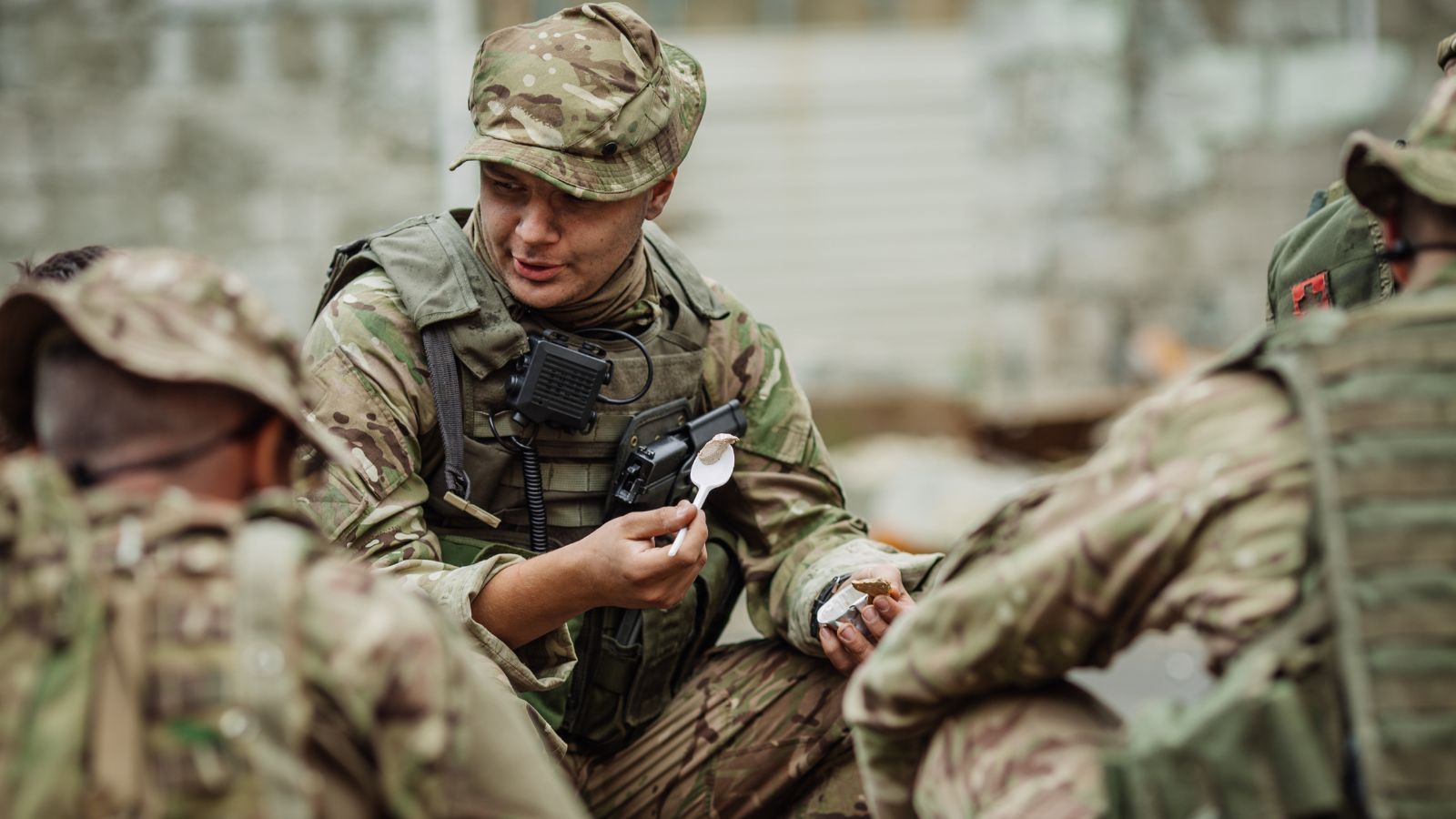
MRE stands for “Meal, Ready-to-Eat,” which is a self-contained, individual field ration. These meals are designed for quick, easy consumption in the field, often including a variety of items like entrees, snacks, and beverages. They are a staple of military life, providing necessary sustenance in the middle of operations.
PCS

PCS stands for “Permanent Change of Station,” and it refers to a service member’s relocation to a new duty station. This move can happen frequently and involves significant logistical planning, which can force military members to relocate their entire families and reluctantly adjust to new environments.
POG
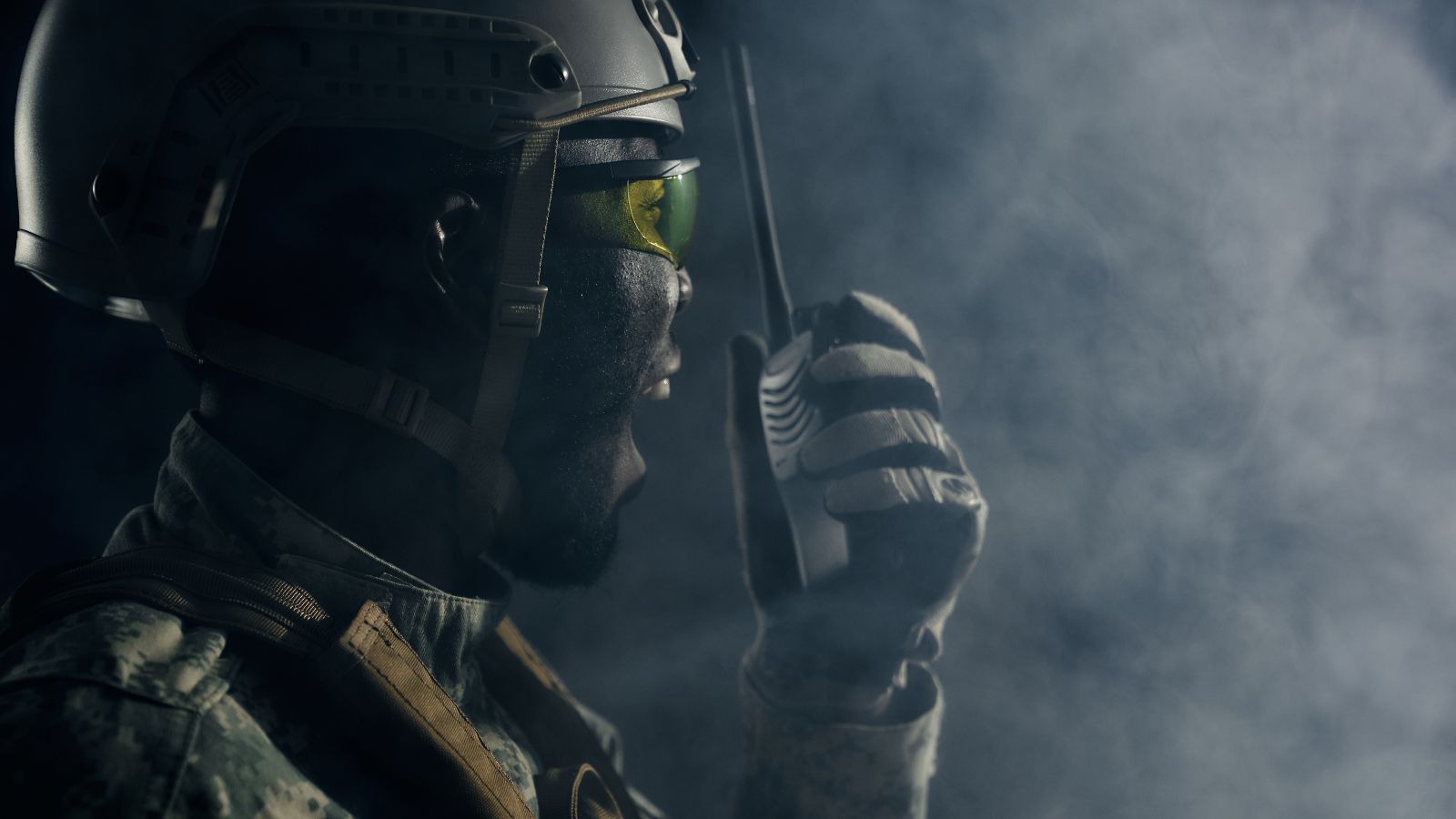
POG stands for “Person Other than Grunt,” and it’s a term for service members who are not in combat roles. It’s often used by infantry to distinguish themselves from those in support or administrative positions, and of course, it’s also used in a friendly manner. It’s one way that active infantry members take pride in their role.
Sandbox
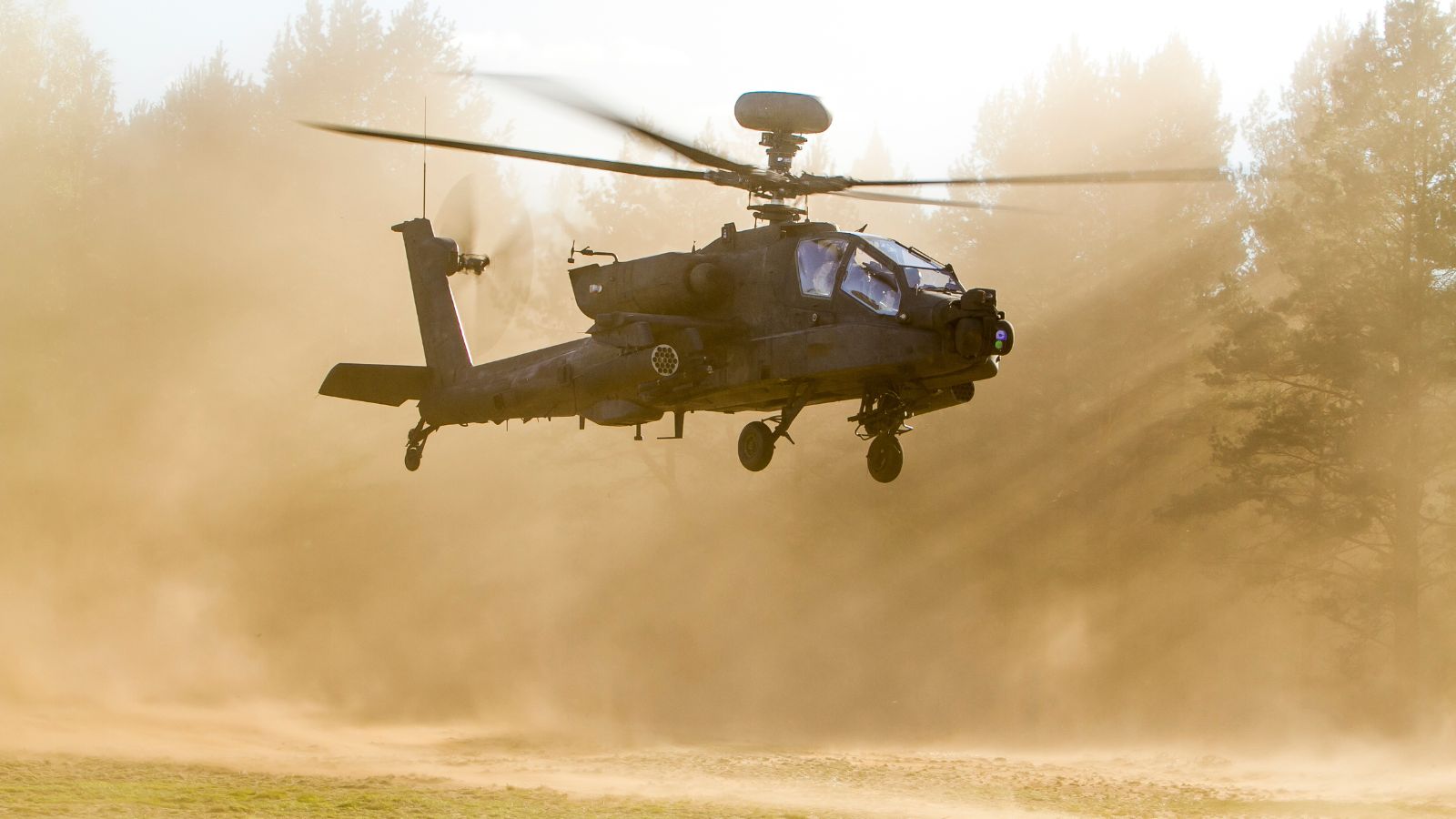
“Sandbox” is slang for a desert deployment location, particularly in the Middle East—and it’s clear how service members came about it. The term is commonly used by military members who have served in desert regions, which are often characterized by harsh and challenging living and working conditions.
Scrambled Eggs
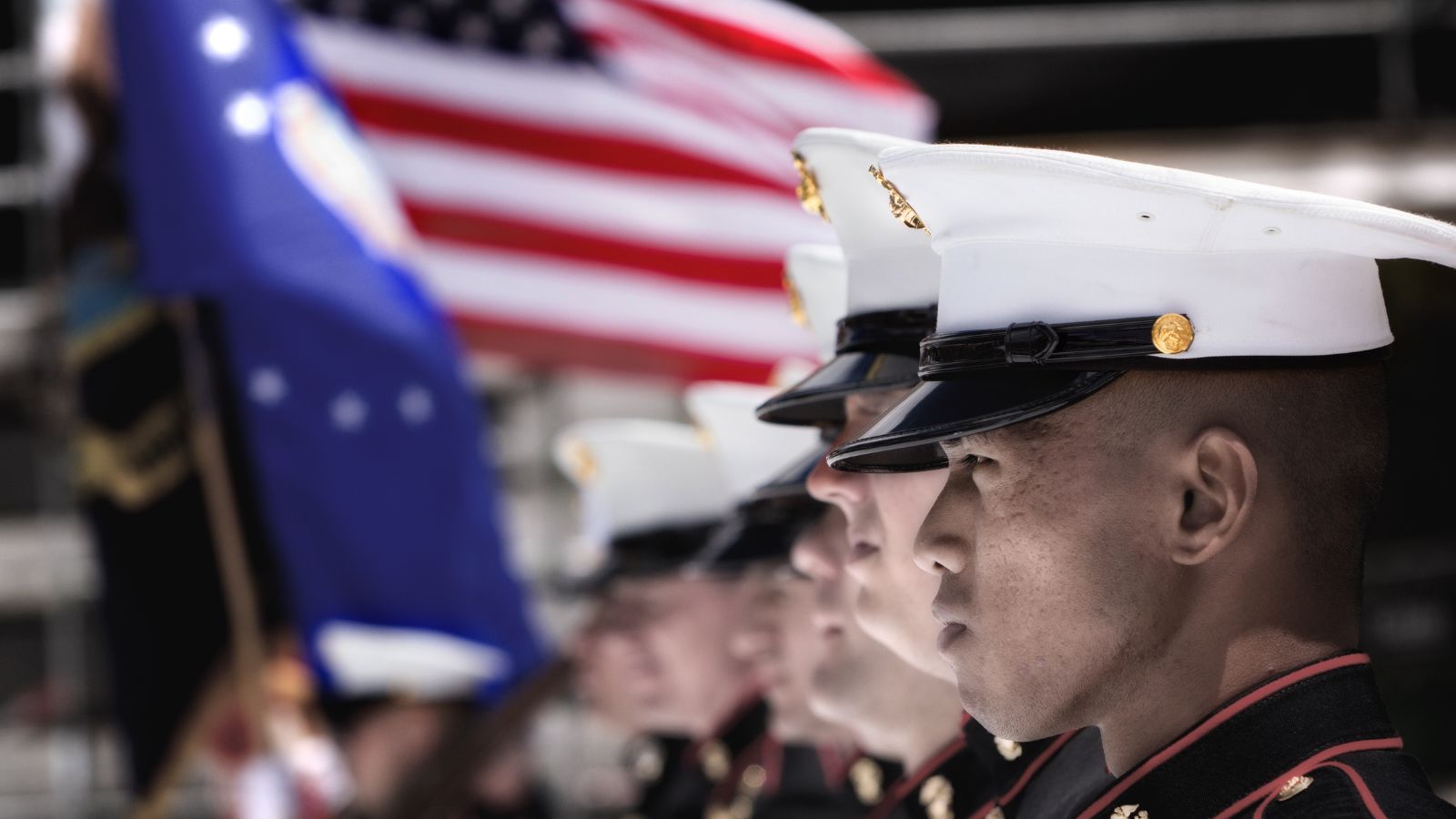
“Scrambled eggs” refers to the gold oak leaf embellishments on the visor of a commissioned officer’s dress cap. It is a playful recognition of rank and experience, and these decorations are a symbol of authority and responsibility. Sometimes, “scrambled eggs” is used as a nickname for the officers who wear them.
Shore Leave

Shore leave is a term used by the Navy to describe authorized leave when a ship is in port. Sailors use this time to rest and recuperate on land, sometimes choosing to visit their family or go explore new places. This leave can be as short as just 48 hours, however.
Sitrep
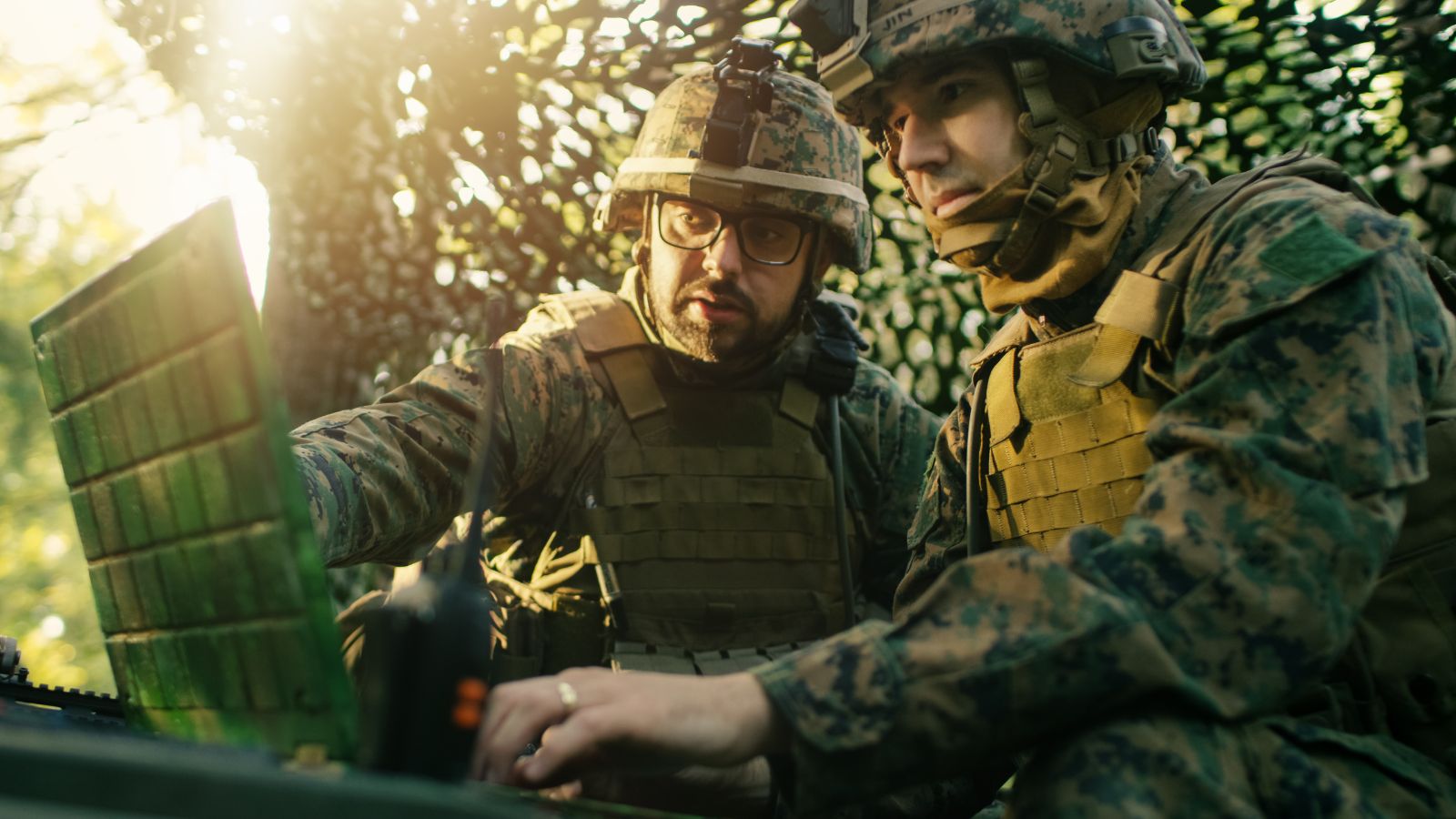
Sitrep is short for “Situation Report,” and as explained by Merriam-Webster, it’s a brief summary of the current military situation, including any developments and necessary actions to take. These reports are crucial for maintaining situational awareness and making informed decisions in operations.
Tango
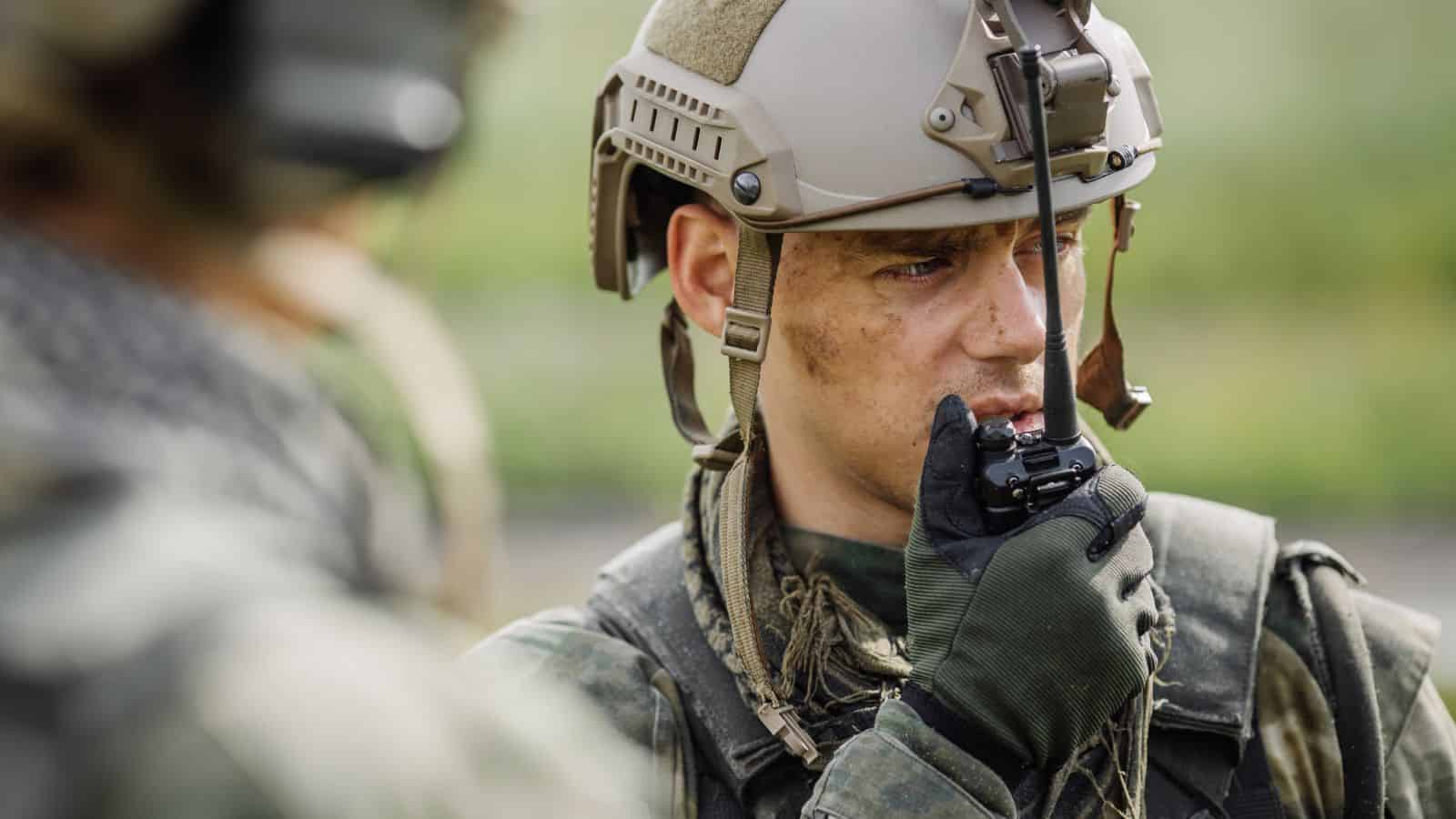
“Tango” is the phonetic alphabet code for the letter T. It’s often used in radio communications to ensure clarity and prevent misunderstandings, particularly in noisy or high-stress environments. The use of the phonetic alphabet is essential for accurate and efficient communication in the military, preventing errors that could have serious consequences.
Top

“Top” is a nickname for the first sergeant—a senior non-commissioned officer in a group who plays a crucial role in maintaining discipline and morale. This term conveys respect and recognition for their leadership role, and the first sergeant is essential to day-to-day operations and soldier welfare.
Watch
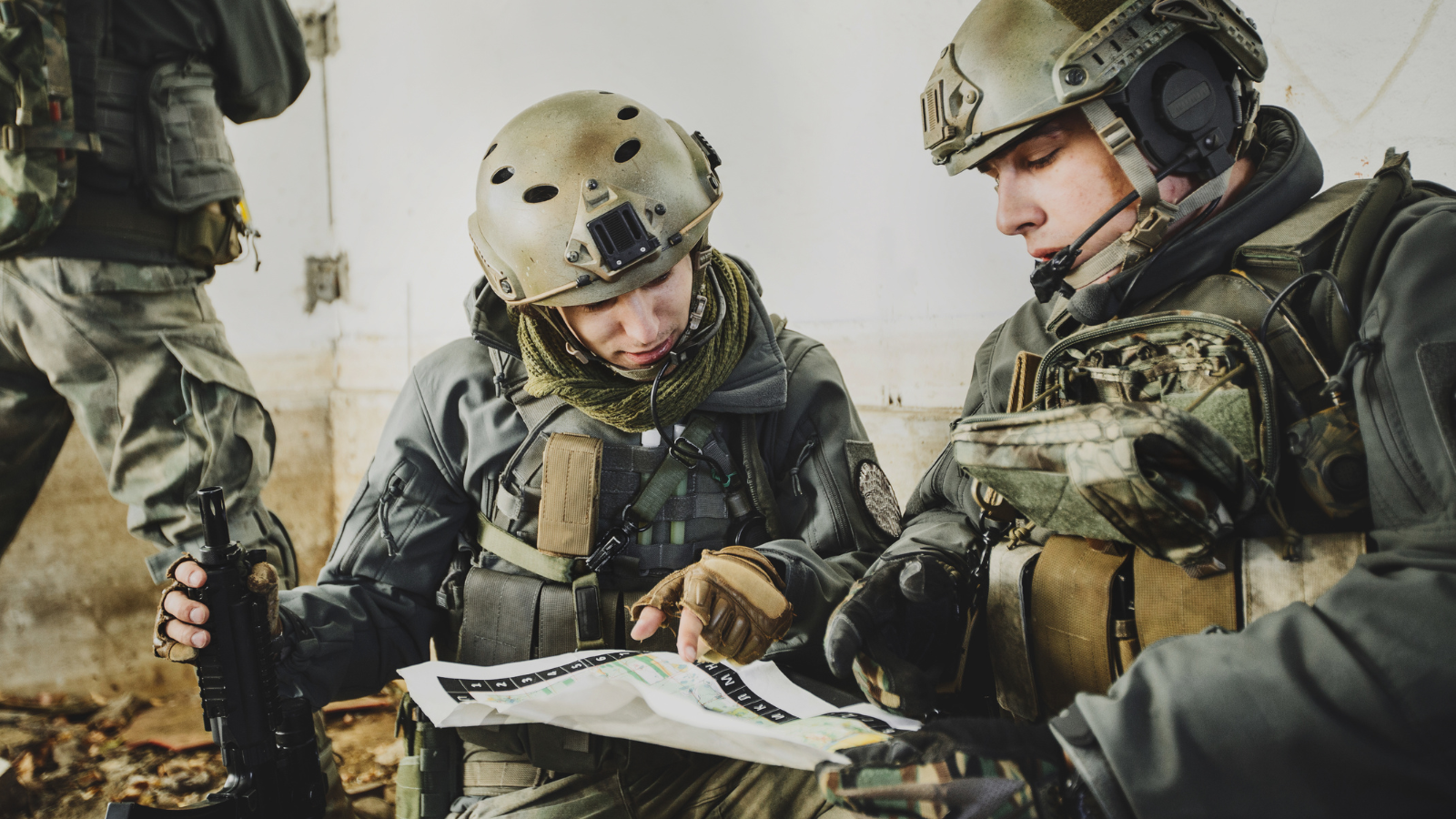
A watch is a period of duty, particularly in the Navy, where service members stand guard or monitor equipment to ensure safety and security. Watches are scheduled in shifts to ensure continuous coverage and can include responsibilities like lookout, engine room monitoring, and security patrols.
Zero Dark Thirty
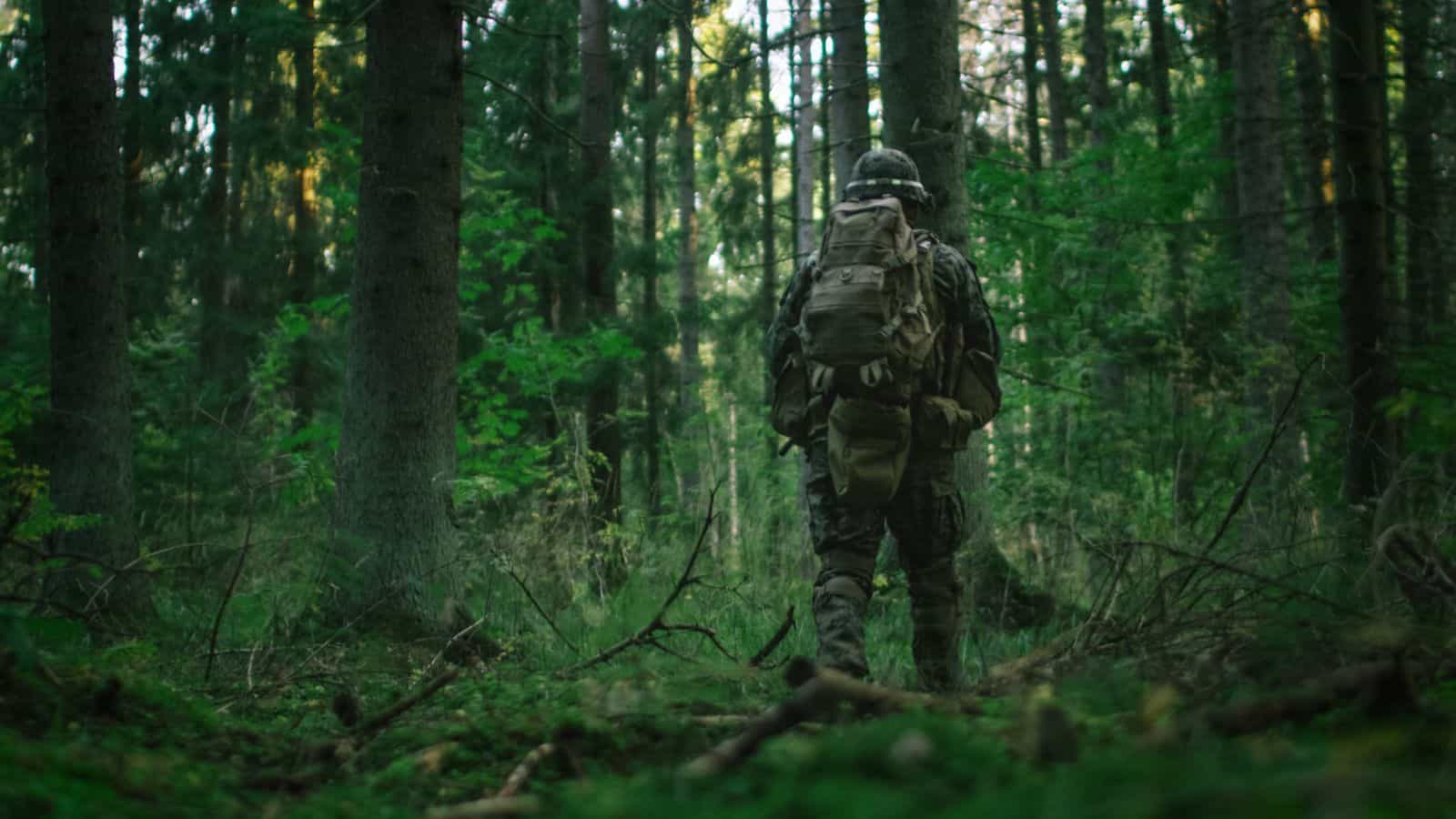
“Zero Dark Thirty” directly translates to “0:30 AM,” but is commonly used to refer to a time very early in the morning, often before sunrise—between 00:01 AM and 05:00 AM. During this time, military members partake in morning operations or activities like training exercises, patrols, and deployments.
Up Next: 20 Personal Things You Should Never Share With Others

Building meaningful connections with others requires a certain level of transparency and trust, but that doesn’t mean you have to tell your friends and family members everything! Some aspects of our lives are too personal, incriminating, or risky to share. This article explores 20 aspects of your personal life that you should always keep confidential.
20 Personal Things You Should Never Share With Others
18 Things Everyone Forgets to Include in Their Will—But Shouldn’t

Wills and estate plans are essential ways to ensure what will happen to your belongings and property when you die or are incapacitated. However, people often forget to include important information in their wills before it’s too late, complicating matters for their descendants. Here are the 18 common things people forget to include in their will.
18 Things Everyone Forgets to Include in Their Will—But Shouldn’t
18 Items at Walmart that Aren’t Worth Your Hard-Earned Money

For many of us, Walmart is the go-to superstore. Whether we need groceries, clothing, or technology, Walmart is a one-stop shop for everything you would need. However, there are some Walmart products you should avoid at all costs, such as the following 18 examples.
18 ITEMS AT WALMART THAT AREN’T WORTH YOUR HARD-EARNED MONEY

